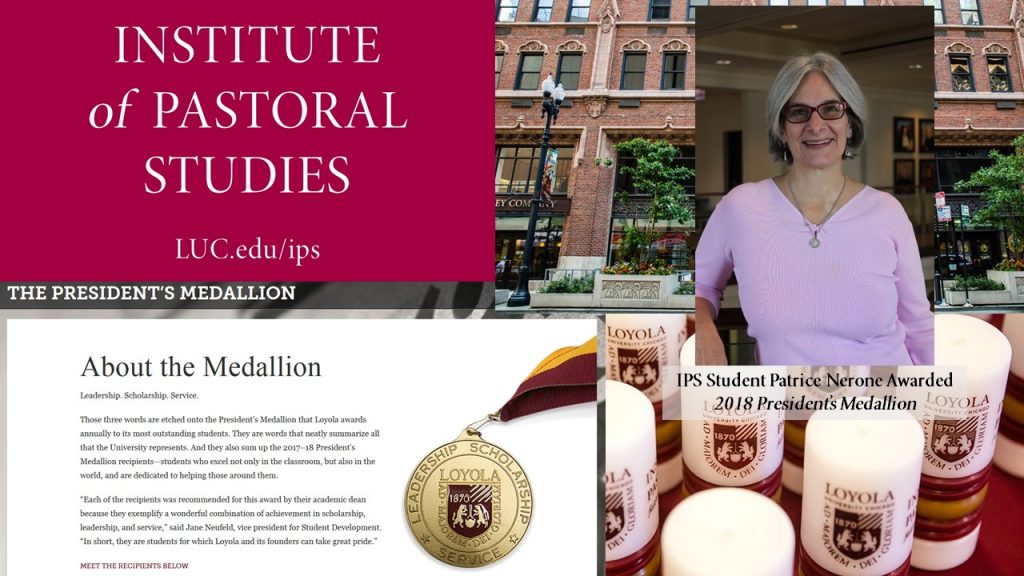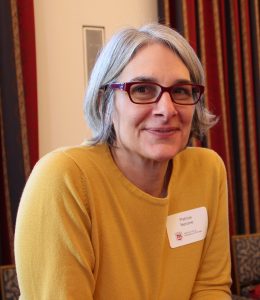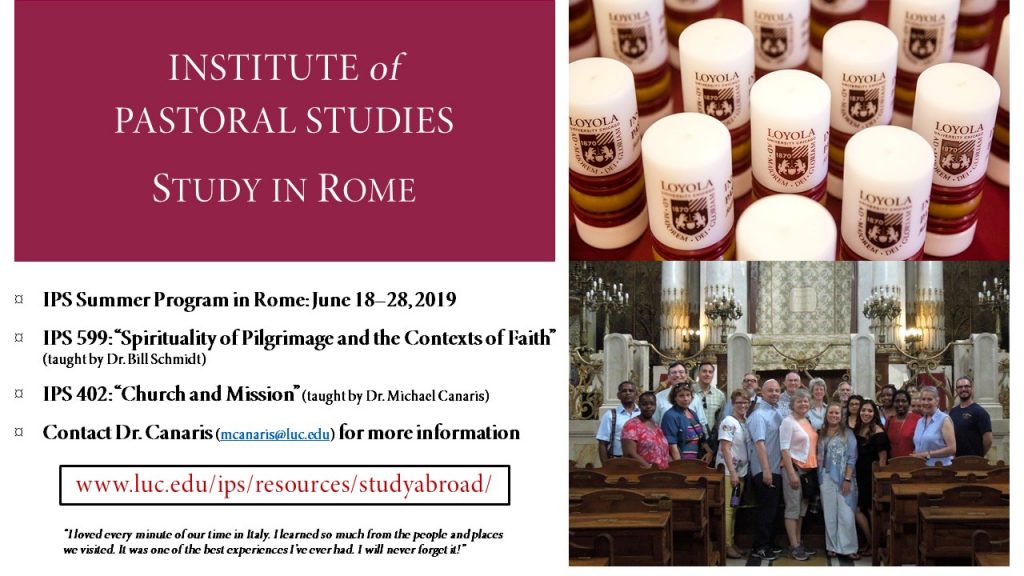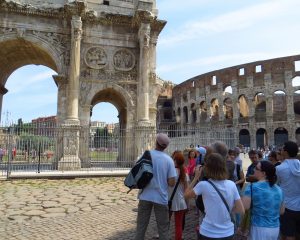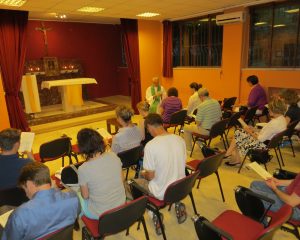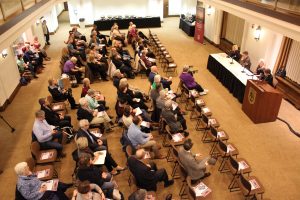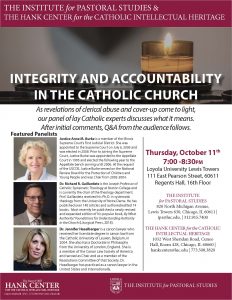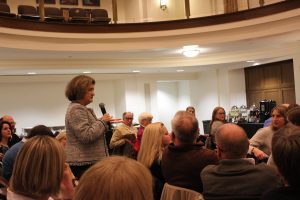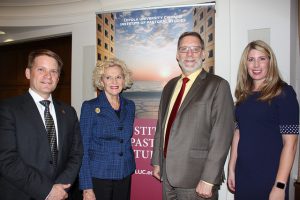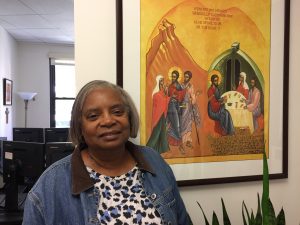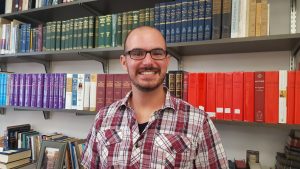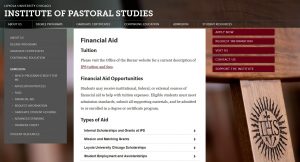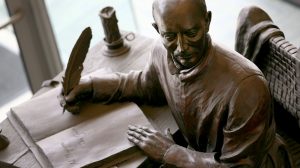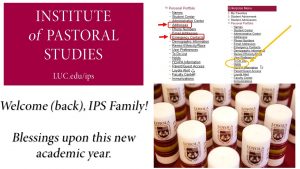Each year, Loyola University Chicago honors its most outstanding students with the President’s Medallion. This award recognizes students who exemplify the three words etched on the medal: leadership, scholarship and service. Representing IPS in the roster of university-wide medallion recipients this year is Patrice Nerone, a dual degree M.Div.-MAPC (Master of Divinity-Master of Arts in Pastoral Counseling) degree student.
“Each of the recipients was recommended for this award by their academic dean because they exemplify a wonderful combination of achievement in scholarship, leadership, and service,” said Jane Neufeld, vice president for Student Development. “In short, they are students for which Loyola and its founders can take great pride.”
We reached out to Patrice to find out what this award means to her, as well as to learn how IPS has impacted her life.
What does the President’s Medallion award mean to you, Patrice?
I feel very humbled to receive this award and what means most to me about it is that I feel seen and appreciated as a valued member of the IPS community. To know that everyone here is supporting me and wants me to succeed has had a profound effect on my sense of belonging and my desire and ability to risk putting myself out there more. I’m learning that succeeding doesn’t mean I’m expected to do everything perfectly, but that my humanly often imperfect self is sufficient.
I understand you’re currently on a dual M.Div.-MAPC track here at IPS. Can you tell us a little bit about what you were doing prior to enrolling at IPS? How did you discern IPS to be your next step?
I was a holistic nurse at Cleveland Clinic working with a team of chaplains to provide complementary therapies and spiritual and emotional support for patients, their families, and the employees. I deeply connected with the chaplains and decided to study spiritual direction with their encouragement. At the same time, I was learning hypnotherapy and between the two programs of study I felt called to something more. Through the process of Ignatian discernment my spiritual director suggested I consider chaplaincy and recommended Loyola. I was very drawn to the dual degree at IPS because it encompassed all of my interests and that the focus was on pastoral presence rather than an intellectual approach to counseling was a key factor in my decision making.
What has your IPS journey been like so far?
My favorite experience with IPS was the Rome study. It was as much a spiritual experience as it was educational and I am eager to return to Rome with IPS for a pilgrimage experience. I can’t imagine a better group to make a pilgrimage journey with and highly recommend including this opportunity in your studies, if possible.
I am so appreciative of my time at Loyola and realize how much Ignatian Spirituality and the IPS learning environment has helped me grow in awareness, acceptance, and empathy for myself and others. The administration, faculty, and students have all demonstrated a level of compassionate care and unconditional positive regard that makes Loyola stand out amongst all the other schools I’ve attended. I will hold in my heart many fond memories of all those who shared this particular journey with me.
How do you envision life unfolding after IPS?
This is still a work in progress. I will most likely be looking for either a post-graduate fellowship or a chaplain residency program that enables me to continue developing experience and skill in both chaplaincy and counseling. I believe I still have much to learn and yet I also have much to offer so, I feel it’s time now to put my experience to work in a meaningful way while continuing to build on the foundation Loyola provided.
How have you ensured balance in your holistic life, given your IPS commitments? Can you share a personal spiritual practice that continues to restore and re-energize your mind, body, heart and spirit?
My life journey thus far has helped me learn to accept my limitations without shame or guilt and that it’s ok, and moreover it’s necessary, to make my own wellbeing a priority. This means taking time to pay attention to what I am thinking and feeling, and not just intellectually or emotionally but physically and spiritually, too. The more I’m able to acknowledge what I’m experiencing the sooner I can do something to prevent a potential meltdown. The modality I employ to restore my equilibrium depends on what my particular need is at the time. For example, if I’m feeling stressed and anxious I will probably meditate more frequently, and if I’m feeling spiritually bereft I find Lectio Divina a particularly helpful practice for bringing me back into closer communion with God. Overall, being in nature gives me a profound sense of being grounded and connected to the Fullness of Life so I’m mindful of seeking opportunities to immerse myself in the beauty of creation as much as possible. Somehow, I never feel alone when contemplating nature.
For the university’s profile on Patrice as President’s Medallion recipient, go here.
Congratulations, Patrice, on this special honor. Thank you for embodying the IPS spirit of creative, compassionate, and courageous service to church and society.
~~~~~~~~~~~~~~~~~~~~~~~~~~~~~~~~~~~~~~~~~~~~~~
